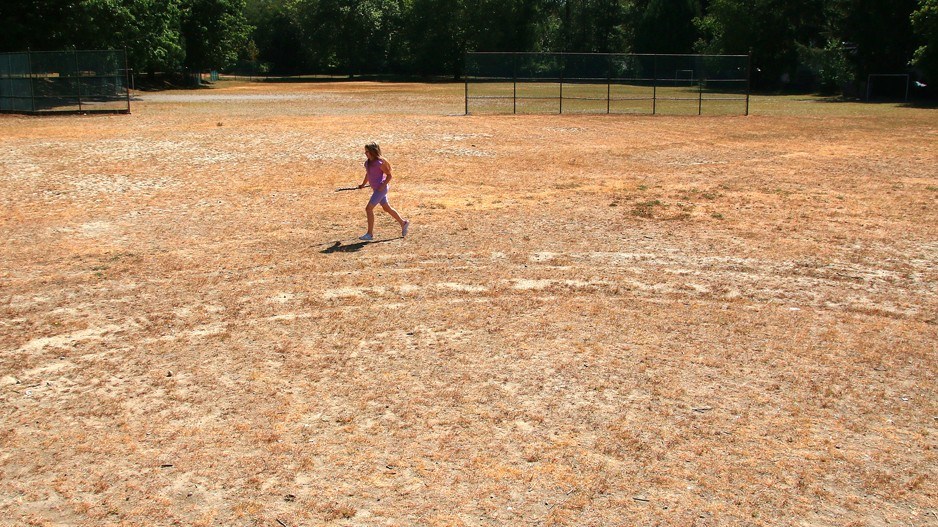Forty days and forty nights. That’s how long Metro Vancouver went without a drop of rain between mid-June and the end of July, before getting a bit of respite on July 31.
But just as the 2015 drought may have already been forgotten by many, so too will this year’s drought likely be forgotten after the fall rains come.
Even on the “Wet Coast,” drought is a natural phenomenon that occurred periodically in the Pacific Northwest long before industrialization.
While climate scientists can’t say with certainty that extreme weather events are directly caused by global warming, one need only look at the recent flooding in Europe and China and the heat waves and wildfires in Turkey and the Pacific Northwest for evidence that climate change is likely responsible for making these natural events unnaturally severe.
So what are the prospects for British Columbia when it comes to water issues – flooding and scarcity – in the coming decades, and what needs to be done to adapt?
The long-term forecast for British Columbia is that there will be years where it may be whipsawed by excessive precipitation in the winter and not enough in the summer.
“British Columbia is not going to have a water shortage problem,” said climate modelling scientist and former BC Green Party leader Andrew Weaver. “It’s going to have a water storage problem. That is, we’re going to get more of it when we don’t need it, and less of it when we do need it.”
The long-term predictions are that B.C. can expect to have earlier springs and summers, which will mean snow packs will melt earlier – as has been the case this year.
Adaptation measures for drinking water are fairly straightforward: Dams for water reservoirs will need to be built higher to create more storage capacity.
“I look at Victoria as an example, where there was some good foresight there,” Weaver said. “We increased the height of our reservoir, and everyone was complaining back in the day about doing it. But, frankly, it was quite visionary to do that, because we don’t have a water problem in Victoria because of that increased reservoir.”
The Intergovernmental Panel on Climate Change (IPCC) predicted in 1990 that precipitation in mid- and high-latitude areas would increase in the winter, and indeed B.C. has become 22% “wetter” than it was a century ago, according to the provincial government.
Increased precipitation in the winter is a good thing, because it charges B.C.’s fresh water battery in the form of heavier snow packs.
But in years when summer arrives early, with higher than average temperatures, that snow will melt more quickly, and when combined with rain can cause flooding. Adaptation measurers for flooding include greater setbacks – moving homes and other structures further back from rivers in flood-prone areas.
“I think floods have the effect of doing that for you,” said David Scott, a forest hydrologist at the Earth, Environmental and Geographic Sciences department at the University of British Columbia’s Okanagan campus. “You eventually get tired of having to rebuild.”
B.C. is blessed with an abundance of fresh water, thanks to comparatively high amounts of precipitation, mountain snow packs and glaciers. In the Interior and coastal mountains, glaciers supplement stream flows in the late summer.
“We’re losing those glaciers, so we are going to lose that late summer supplement of stream flow,” Scott said.
The Okanagan, which doesn’t have glaciers to supplement streams in the late summer, could experience greater water scarcity, which will have impacts on farms and orchards that rely on water for irrigation.
“The challenge is that summers are coming earlier, and they’re going to be longer, and so our water supplies may run out before we get to September,” Scott said. “So, some of the irrigators are going to be in trouble.”
There are ways to better manage water resources, however, Scott said. Australia, the Middle East and other arid regions have always had to do it.
“If we take the broad view, Canada is blessed with fantastic amounts of fresh water, so we’ve never been challenged to manage our water resources carefully,” Scott said. “So what’s going to happen in the future is that we will be a little bit challenged to manage our water resources carefully.
“We will probably need to look to countries like Australia, where they have far fewer water resources, but they have a long history of managing those effectively. There’s a lot we can do, and we do not need to reinvent the wheel.”
Adapting to water scarcity in dry periods requires better conservation and building more or bigger water storage reservoirs.
Because B.C. gets most of its electricity from hydroelectric dams, there are concerns that low water levels could affect power supplies. But Scott noted that B.C.’s hydro dam reservoirs are quite large.
“It will take longer before those large reservoirs are under threat. But that is a longer-term problem.” •




